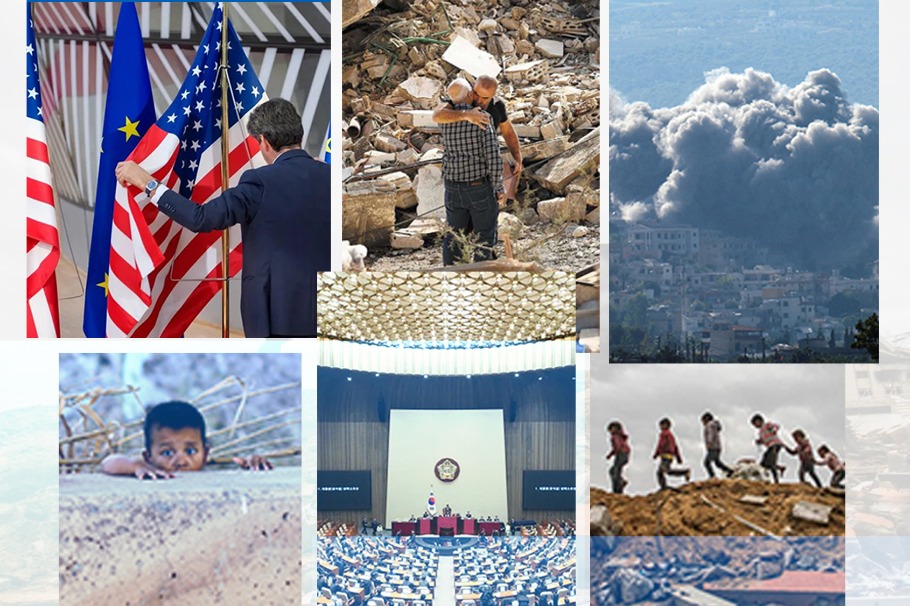Virtual reboot


The impact of COVID-19 will also be felt in cyberspace
The COVID-19 pandemic has thrown the world into turmoil. The world economy is plummeting toward a recession, and the unemployment rate has soared worldwide. Globalization is facing risks and the global supply chains may be facing adjustment and decoupling. The pandemic has impacted political and social stability fueling populism, protectionism and unilateralism, and the competition among major economies has intensified.
The pandemic and the complicated international situation will inevitably bring greater uncertainties and challenges to the formation of the international order in cyberspace.
First, the competition among cyberspace powers has intensified, mainly in science and technology, the formulation of digital economic rules and the construction of cyber security capabilities. The means of competition will be the combination and integration of science and technology, personnel, capital, trade and other factors. Due to the rising competition, the willingness of these economies to cooperate has been largely reduced, thus limiting the role and effectiveness of multilateral cooperation mechanisms.
Second, the security situation in cyberspace has deteriorated, and the process of militarization and weaponization has accelerated. If the pandemic has brought a new wave of informationization and digitalization, the higher the degree of dependence on the wave, the higher the vulnerability of cyber security. Interpol warned that cybercrime is threatening key health facilities through ransomware; the growth rate of phishing software, malicious websites and malicious software has risen sharply; and data leaks happen frequently, which threatens personal information security and brings serious economic losses. During the pandemic, the severe cyber crime situation needs to be dealt with globally, which highlights the serious shortfall in the current cyberspace governance.
Under the background of major power competition, the militarization and weaponization of cyberspace will change the form of future wars. In April 2020, RAND Corporation released the report "Future of Warfare 2030", giving recommendations to the US government for the new forms of war in the next decade, namely, the greater use of artificial intelligence in the military field, and the information warfare capabilities. The former means the militarization of cyberspace, while the latter is the weaponization of cyberspace.
With the application of new technologies such as AI to the military field, norms are urgently needed to regulate the behavior of countries. In addition, cyberspace also faces the security risk of being weaponized, that is, being used by the state as a weapon to achieve its political goals. The most typical example is the weaponization of social media. The surging and torn public opinion during the pandemic highlights the significance of the cyberspace ecology for national security.
Third, the fragmentation and disorder of cyberspace will be further aggravated. After the pandemic, the digital economy and society will usher in a new round of development opportunities worldwide. Wider internet access and the application of digital technology will be deeply explored, and the related governance needs will also show a more heterogeneous trend in terms of subject, mechanism and issue level. The fragmentation of cyberspace increases the breadth of issues demanding rule-making, and the declining willingness of major countries to cooperate increases the difficulty of rule-making in cyberspace. The formation of international order in cyberspace needs a longer period of bargaining.
China has actively participated in the global governance of cyberspace over the past decades. It put forward the concepts of governance such as building a community with a shared future in cyberspace, and Chinese IT enterprises compete in the world market. Nevertheless, China also faces lots of difficulties in cyberspace.
In May 2020, the White House issued the United States Strategic Approach to the People's Republic of China. It indicates that the US will strengthen its strategic competition with China. It set out two strategic objectives-improving the flexibility of relations with various organizations, allies and partners and forcing China to stop or reduce its actions that harm the interests of the US-and proposed challenging China in three major battlefields: the economy, values and national security.
In fact, in the past few years, we have seen that the US is trying to win over its traditional allies and increase its containment of China in cyberspace. It has successively issued the Prague Proposals on 5G and the joint statement of 27 countries on Advancing Responsible State Behavior in Cyberspace. During the pandemic, the US government has taken a series of measures to contain China. From restricting suppliers of Huawei products from using US software and technology to putting more than 30 enterprises on its sanctioned entity list, to restricting visas for some scholars and students involved in integration of defense and civilian technologies, the US containment measures against China have expanded to many fields including technology, personnel, capital, investment, trade and finance.
With the recent enhancement of their policy independence, European countries have adopted hedging strategies in Sino-US relations, that is, they have kept a certain distance from the US position. For example, they have actively participated in the construction of the Belt and Road Initiative, which has also provided conditions for the mutually beneficial development of Sino-European relations.
Given the current uncertain and unstable domestic and international environment, China's 2020 Report on the Work of the Government, unveiled in May, focused on the domestic economic activities as well as promoting exchanges between domestic and international markets. The newly-adjusted economic strategy could be also applied to cyberspace. That is, China should focus on domestic cyberspace governance and then contribute its best practices to global cyberspace governance.
The author is a senior fellow of the Institute of World Economics and Politics, Chinese Academy of Social Sciences. The author contributed this article to China Watch, a think tank powered by China Daily. The views do not necessarily reflect those of China Daily.


































